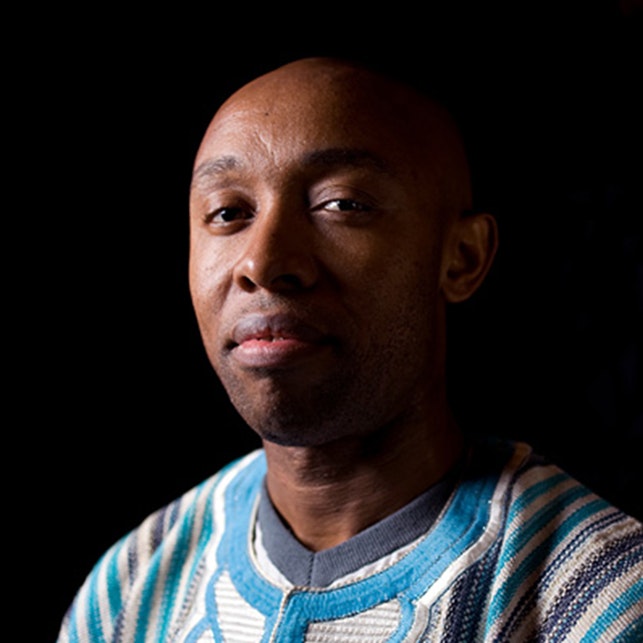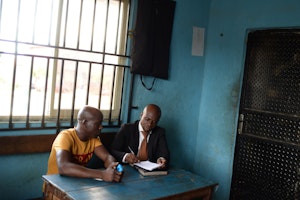How a Legal Aid Program is Tackling the Crisis of Nigeria’s Overcrowded Prisons
By Chidi Odinkalu & Stanley Ibe

Imagine being locked away for months, or even years, without seeing the inside of a courtroom. While millions of people around the world are held in prisons awaiting trial, the unbridled overuse of pretrial detentions in Nigeria has long afflicted the integrity of the country’s criminal justice system and its overcrowded prisons.
Pretrial detention in Nigeria can often result in violations of human rights—the same rights that are guaranteed in Nigeria's constitution and stipulate that the police must bring a person before a court within 24 to 48 hours of arrest. Pretrial detention not only wastes human potential, but also impacts families and communities, undermines economic development, and puts a strain on limited state resources. Pretrial detainees, who are almost exclusively poor and unable to afford a bail, bribe, or barrister, are often forced to sell their possessions and can lose their jobs while they wait behind bars to appear before a judge.
That’s where Nigeria’s Police Duty Solicitors Scheme, a legal aid program aiming to reduce pretrial detentions across the country through free legal counsel, comes in. When the program began in 2004, sixteen novice lawyers were deployed to police stations across four states: Imo, Ondo, Kaduna, and Sokoto (due to Nigeria’s federal system, the project required buy-in from individual states to move ahead). In 2004, more than two in three prisoners in Nigeria had not yet been tried of any crime. Now, more than a decade later, over 15,000 suspects have been spared unnecessary pretrial detention thanks to free legal aid.
The success of this undertaking, jointly launched by Nigeria’s Legal Aid Council and the Open Society Justice Initiative, was far from a given in a country with a complex and diverse federal system and 36 states. Hurdles included lack of data, operational costs, opposition to the project, and lack of buy-in from the government and institutions. Even a new requirement in 2017 addressing the problem of state police commissioners barring duty solicitors from police stations was not enough to result in the expansion of legal aid services nation-wide.
Faced with daunting odds, it was ultimately the leadership of one of the smallest branches of the Nigerian Bar Association that proved to be a vital tipping point. In 2018, Ikorodu, a branch in Lagos State, launched a bar-led duty solicitors program that resulted in one in five of its active members contributing their services on a pro bono basis, bringing about in an important influx in human resources. As a result, four more branches (Epe, Abuja, Bwari, and Gwagwalada) took note and, the following year, also launched the program. This year, two branches, Badagry and Lagos, by far the largest branch of the bar association, followed suit.
With a network of hundreds of active lawyers at the Nigerian Bar contributing thousands of billable hours to keeping Nigerians out of jail, and many new partners including government, companies, and philanthropies, there is new hope that there can be a solution to the longstanding but seemingly incorrigible problem of unnecessarily long pretrial detentions in police stations.
Since inception, the project has been implemented in nine states of Nigeria. It is now supported by seven branches of the Nigerian Bar Association with prospects of expanding to twelve by the end of 2020. Two states, Lagos and Ogun—together hosting more than 50% of Nigeria’s pretrial population—have indicated interest in launching a state-led legal aid program in 2020. The program’s success, more than a decade in the making, is why the Justice Initiative will be transitioning its support away from the project this year.
The world will be watching as the Nigerian government, its institutions, and its people lead the change to build a more humane and fair justice system.

Until November 2021, Chidi Odinkalu was senior managing legal officer for the Africa Program of the Open Society Justice Initiative.
Stanley Ibe is a legal officer for Africa at the Open Society Justice Initiative.

